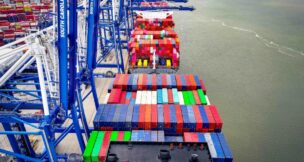State effort to ban local plastics ordinances dies
Staff //May 16, 2018//
An effort in the S.C. Legislature to prevent municipalities from creating their own bans on plastic products failed to pass this session, meaning cities and towns retain the power to decide for themselves.
House bill 3529 would have overruled any ordinances passed since Jan. 31, including Mount Pleasant’s new ordinance banning many single-use plastic containers, straws and bags. Mount Pleasant’s ruling is set to go into effect next spring.
The bill would have instead given the General Assembly the power to decide on any bans related to plastic containers. Matt Seaholm, executive director of the American Progressive Bag Alliance, said the state should create one law to regulate the use of plastic products to avoid a patchwork of ordinances across the state.
The American Progressive Bag Alliance lobbied in favor of H.3529, paying $30,000 to four lobbyists in Columbia from June 2017 through Dec. 31, filings with the S.C. Ethics Commission show.
Seaholm said the bill had bipartisan support but failed to become law when time ran out before the session ended. It could come up again next year.
Lobbyists for the plastics industry, plastic manufacturers and other business leaders have balked at a growing trend of coastal cities and towns’ curbing plastic use in favor of environmentalism. Beaufort County, Folly Beach and the Isle of Palms also have passed ordinances to curb plastic use.
Seaholm said plastic bag bans and the like are “feel good legislation” that councils like to back, but he said the data shows the policies do not work, and they strain small businesses.
Others said a state ruling would create a level playing field for businesses and industry whose customers are in multiple cities or towns. For example, a caterer would not have to abide by different rules when serving two cities.
Those against H.3529 said it would take away municipalities’ ability to deal with their own issues, particularly along the coast where environmental issues often become a priority.
Mount Pleasant council members, who voted 8-to-1 in favor of the town’s new plastics ordinance, say they hope to eliminate businesses’ use of many unrecyclable products so fewer Mount Pleasant residents will use them throughout their day. They want to cut down on the amount of plastic making its way into landfills and waterways and harming wildlife.
Caroline Bradner, the Coastal Conservation League’s land, water and wildlife project manager, said plastics that cannot be recycled end up hurting wildlife, which in turn can affect the region’s hospitality and tourism industry. Oysters and fish can ingest pieces of plastic, which means humans who eat them do as well, she said.
Plastic bags and containers can also harm sea turtles; many sea turtles at the S.C. Aquarium’s rehabilitation center were harmed by ingesting plastic bags.
“These plastics are really only used for an average of 12 minutes before they’re discarded, so of course they’re going to end up in our waterways, of course they’re going to affect our water quality and our wildlife, and so that’s why we think it makes sense for our area, in particular, to take these steps,” Bradner said.
Mount Pleasant ordinance
The Mount Pleasant ordinance does not go into effect until April 2019, giving businesses one year to change to eco-friendly options, such as paper bags, cardboard containers or cups made from sugar cane, for example.
Town Council members said they talked with chambers of commerce, environmental groups and business owners to gather input on the town’s ordinance.
Several council members who voted for the ordinance acknowledged that it will cost businesses money to transition from plastic bags, to-go containers, cups and straws to recyclable replacements.
The businesses will have to decide whether to absorb that cost or pass some or all of it on to customers. Council members said the one-year rollout will give stores and restaurants time to adjust and use up existing inventories. Businesses can apply for an extension as well.
“We want to make this as painless as possible,” said Jim Owens, Mount Pleasant Councilman.
Opponents said it could hurt small businesses that have tight margins. Kathy Landing, the lone Mount Pleasant council member who voted against the ordinance, said it puts Mount Pleasant businesses at a disadvantage.
“You will be at a cost and convenience disadvantage for competitive bids, thereby punished for having your location here. Are we trying to drive businesses out of the town?” Landing said during a recent Town Council meeting.
Several proponents said the transition might be a painful, albeit necessary way to start reducing the amount of plastic waste in the Lowcountry. Bradner said residents will also have to adjust their practices — bringing reusable bags when shopping or adjusting to store-provided paper bags, for example. Advocates said the switch away from plastic might attract environmentally conscientious customers.
Mount Pleasant Councilman Tom O’Rourke said the ordinance is not perfect and could change in the following year, but he voted in favor of it because it is designed to protect the environment. O’Rourke spent the past 17 years as executive director of the Charleston County Park and Recreation Commission.
“I’ll bet in the next 25 years, this whole entire country takes a look at petroleum-based plastic products and what they do to the environment everywhere, and if there can be an alternative to that, why aren’t we doing it?” O’Rourke asked.
Owens said he has watched plastic become the favored product during his lifetime. He said his concerns over the amount of unrecycled plastic that ends up on Lowcountry beaches and in waterways led him to champion the ordinance.
“I grew up in Mount Pleasant, and I have seen all of the changes over the past 50 years,” he said. “The things that really resonated with me was the amount of plastics that we have in our waterways. … It all makes its way to the ocean. I don’t want our future generations having to deal with a problem that we created.”
t














